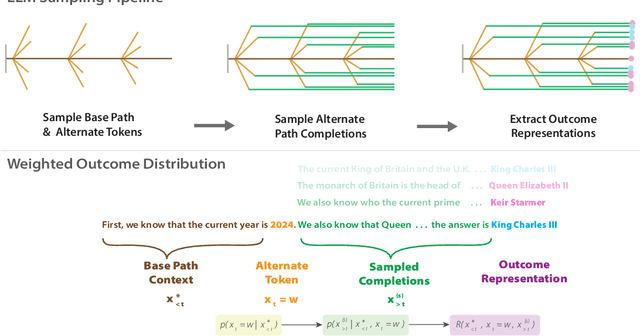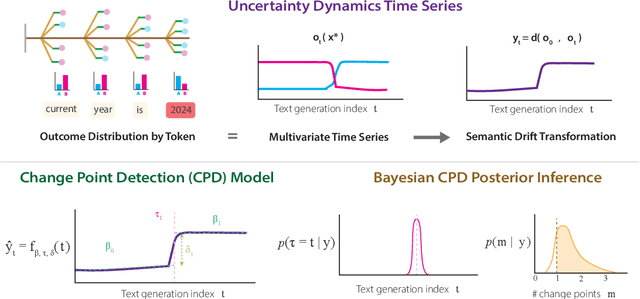Forking Paths in Neural Text Generation
Paper and Code
Dec 10, 2024



Estimating uncertainty in Large Language Models (LLMs) is important for properly evaluating LLMs, and ensuring safety for users. However, prior approaches to uncertainty estimation focus on the final answer in generated text, ignoring intermediate steps that might dramatically impact the outcome. We hypothesize that there exist key forking tokens, such that re-sampling the system at those specific tokens, but not others, leads to very different outcomes. To test this empirically, we develop a novel approach to representing uncertainty dynamics across individual tokens of text generation, and applying statistical models to test our hypothesis. Our approach is highly flexible: it can be applied to any dataset and any LLM, without fine tuning or accessing model weights. We use our method to analyze LLM responses on 7 different tasks across 4 domains, spanning a wide range of typical use cases. We find many examples of forking tokens, including surprising ones such as punctuation marks, suggesting that LLMs are often just a single token away from saying something very different.
 Add to Chrome
Add to Chrome Add to Firefox
Add to Firefox Add to Edge
Add to Edge